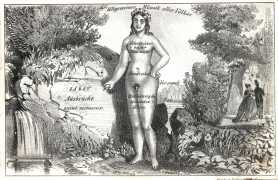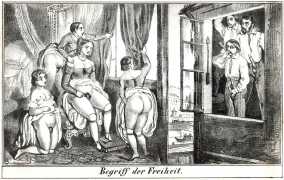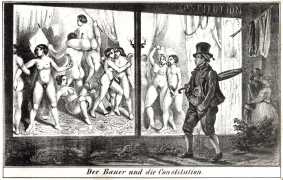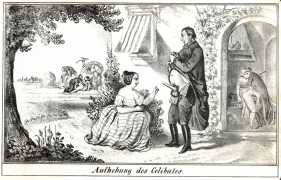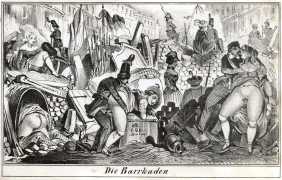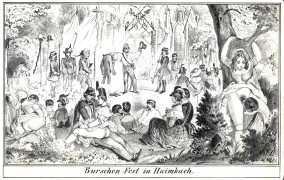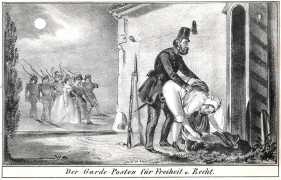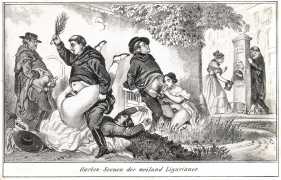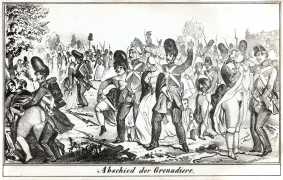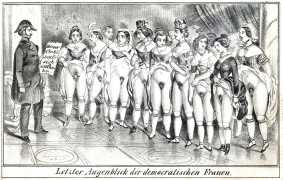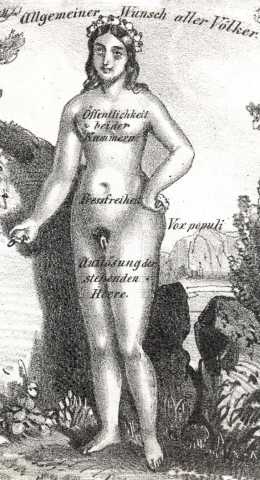
(The Agreed Will of the People; Both Houses of Government Open to All; Press Freedom; Dissolution of the Standing Army; Voice of the People)
1848 was the year of revolution in Europe. The revolutions were essentially democratic and liberal in nature, with the aim of removing monarchical structures and creating independent nation states. After starting in France in February, revolutionary action spread like wildfire. Over fifty countries were affected, but with no significant coordination or cooperation among their respective revolutionaries. Among the major contributing factors were widespread dissatisfaction with political leadership, demands for more participation in government and democracy, demands for freedom of the press, economic rights, the regrouping of established government forces, and the failure of the potato harvest, which triggered mass starvation, migration and civil unrest.
Known in some countries as the Springtime of the Peoples or the Springtime of Nations, 1848 remains the most widespread revolutionary wave in European history.
The ‘March Revolution’, often called the Ausbrüche or Outbreak, in the German states took place in the south and the west of Germany, with large popular assemblies and mass demonstrations. Led by well-educated students and intellectuals, they demanded German national unity, freedom of the press and freedom of assembly. The uprisings were poorly coordinated, but had in common a rejection of traditional, autocratic political structures in the 39 independent states of the German Confederation. The middle-class and working-class components of the revolution split, and in the end the conservative aristocracy defeated it, forcing many liberal Forty-Eighters into exile.
This unknown German artist saw an unprecedented opportunity to link the ideas of the revolution with a parallel revolution in sexual freedom, resulting in a collection of prints with an imaginative libertine theme.
The captions read:
Begriff der Freiheit (The Concept of Freedom)
Der Bauer und die Constitution (The Farmer and the Constitution)
Aufhebung der Celibates (The Repeal of Celibacy)
Die Barrkaden (a misspelling for Die Barrikaden) (The Barracks/Barricades)
Burschen-Fest in Haimbach (Boys’ Festival in Haimbach)
Der Garde-Posten für Freiheit und Recht (The Guardpost for Freedom and Justice)
Ich möcht ein Legionär werden (I Want to be a Legionnaire)
Garten-Scenen der meiland Ligurianer (Garden Scene of the Milanese Lugurians)
Abschied der Grenadiere (Farewell to the Grenadiers)
Letzter Augenblick der democratischen Frauen (The Last Sighting of the Democratic Women)
We are very grateful to Hans-Jürgen Döpp for these images; Hans-Jürgen, the compiler of many books on erotic art, curates the Venusberg online gallery and bookshop which you can find here.


